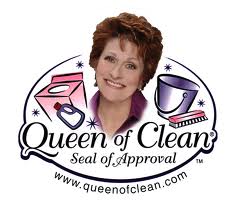The daily grind for health department professionals is underappreciated.
Armchair quarterbacks are quick to point out the failings of health types without recognizing the pressures of a standard epidemiological investigation, along with requirements to test pools, investigate dog bites, and soothe political egos.
As reported by The Daily Courier, Brian Supalla went before the Yavapai County Board of Supervisors Monday (that’s in Arizona) with new food safety regulations expecting a rubber stamp.
Instead, he found himself under fire.
Supalla, county health program manager, was holding a "courtesy public hearing" intended to introduce the board to the 2009 FDA Food Code – safety regulations which the Yavapai County  Community Health Services Board of Health wants the supervisors to adopt.
Community Health Services Board of Health wants the supervisors to adopt.
Supalla wasn’t far into his PowerPoint presentation when he mentioned one of the provisions of the new code – that restaurants would not be allowed to offer hamburgers cooked less than well-done on their children’s menus.
He said that’s because kids don’t have well-developed immune systems and are more susceptible to food-borne illnesses.
But Supervisor Chip Davis stopped him. "Do we have a lot of kids getting sick in Yavapai County from eating rare hamburgers?" Davis asked.
"That’s a difficult question to answer," Supalla said, because most people who become ill from contaminated food will never go to a doctor. "In the 15 years I have been with the county, we have never had a death reported to us determined to be associated with food (contamination)," he said.
Supalla went back to his presentation, outlining the changes to be adopted.
When he was finished, Supervisor Carol Springer spoke up.
"I have a real problem with this," she said. "How did all of us manage to survive without health departments?"
With that door open, she began to talk about events like farmers’ markets and chili cook-offs, which are not specifically addressed by the food code changes.
"I think that’s kind of a trend these days, and we’ve had a number of complaints about the health department stepping in," Springer said. "I’m having a real problem with our county health department saying, ‘No, you can’t have this kind of event’ because you’re serving some food product."
Supalla, unprepared for the topic, did his best to answer Springer, but she pressed on.
"I think this is too much government control when you say, ‘You can’t have a salsa contest," she said, referring to Cottonwood’s Old Town Sizzlin’ Salsa competition, which was planned for spring.
"We have not disapproved any requests for a chili cook-off or a salsa competition," Supalla replied. "Every facet of that salsa-tasting complaint, our investigation found, was based on a complete misunderstanding by the event organizers," who were new to the event this year.
Davis called the new regulations "burdensome" and said he didn’t "see the necessity to increase to an additional level of scrutiny on the restaurant business."
 Pinal County’s Public Health Services District say they’re investigating the outbreak that’s linked to a March 19 wedding at the Windmill Winery.
Pinal County’s Public Health Services District say they’re investigating the outbreak that’s linked to a March 19 wedding at the Windmill Winery.





.jpg) to food-borne illnesses.
to food-borne illnesses. Community Health Services Board of Health wants the supervisors to adopt.
Community Health Services Board of Health wants the supervisors to adopt..jpg) Nevada began removing iceberg lettuce from shelves.
Nevada began removing iceberg lettuce from shelves.